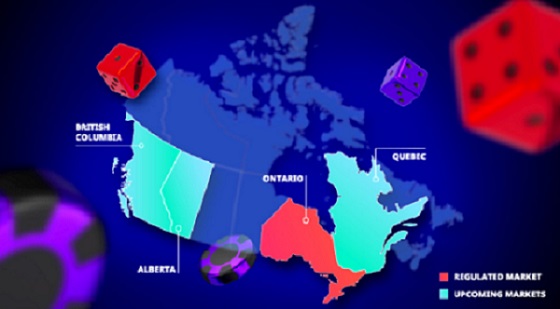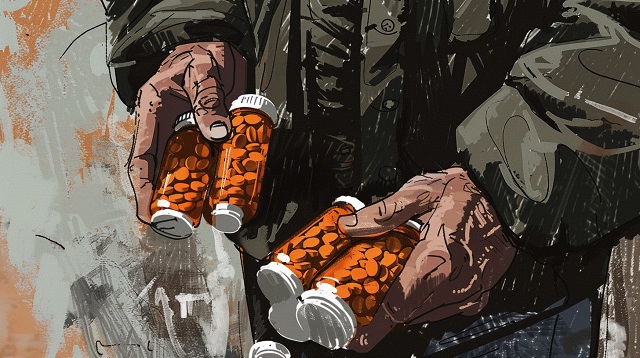Also Interesting
Analyzing the Mid-Season Favourites to Win the 2024 Stanley Cup

At the All-Star break of the 2023-24 NHL season, it feels like there is a clear sense of what to expect for the rest of the year. The top teams have established themselves, and there are some clear favourites that are expected to challenge for this year’s Stanley Cup. While, of course, there is still time for teams to beat the odds, it is always interesting to check in on the league’s top contenders.
Several teams have separated themselves from the pack thus far this season. Let’s take a look at the groups that are poised to make a run to the best trophy in sports, according to the odds on popular sports betting websites.
Colorado Avalanche, +800
The favourite on most betting sites is the Colorado Avalanche. The Avalanche look like a force to be reckoned with. They are led by Nathan Mackinnon, who is having an incredible year and is one of the prime contenders for the Hart Trophy. But he is far from the only star on the roster, with Cale Makar and Mikko Rantanen both performing at the highest of levels. The Avalanche are also proven in the postseason, having claimed a victory two years ago. It would not surprise anyone to see this team make a deep run through the Western Conference.
Edmonton Oilers, +850
Just a few weeks ago, it seemed like the Edmonton Oilers were falling apart. But this team has pulled it together in a resounding fashion. They have won 16 games in a row, putting together one of the longest win streaks in NHL history. This flipped their odds, and they are now one of the league’s top contenders. While Connor McDavid and Leon Draisaitl will ensure this team’s offence is always a force to be reckoned with, they have been winning with defence and goaltending as well during their streak. That should scare all opponents.
Boston Bruins, +950
Many predicted a major falloff for the Boston Bruins after a disappointing exit from the 2023 postseason and the retirement of Patrice Bergeron. However, they have silenced all doubters and sent their odds skyrocketing to start the year. The Bruins are tied for the best record in the league, and they continue to play winning hockey. Their goaltending duo of Linus Ullmark and Jeremey Swayman has been dominant once again, and they are getting an elite season out of David Pastrnak. They have the depth and attitude to make a run to the Stanley Cup. After a rough summer, this team will be very hungry for postseason success.
Florida Panthers, +950
The Florida Panthers shocked a lot of people by making a run to the Stanley Cup last year, but the element of surprise was gone this year. A big performance was expected, and they delivered. This is the kind of team no one enjoys playing. They are physical and mean, with guys like Matthew Tkachuk and Nick Cousins who get under opponents’ skin. Sam Reinhard is having his best year as a pro, and the goaltending has held up. The Panthers have seen improved play in recent weeks. As we move toward the postseason, their odds could improve, as they showed their mettle last year.
Carolina Hurricanes, +1000
The Carolina Hurricanes have been knocking on the doorstep for some time. They have been in the postseason for the past several years but have consistently fallen short. They will be looking to change the narrative this year and have surprisingly strong odds from Vegas here. Carolina has been solid but not dominant this season, although they have picked it up in recent weeks. They have an array of star players, including Sebastian Aho, Andrei Svechnikov, and Seth Jarvis. The question with this team will be whether they can make the leap and actually get the job done on the game’s biggest stage.
New York Rangers, +1100
The New York Rangers came absolutely flying out of the gate this year. They had one of the hottest starts in the NHL. They have slowed down significantly, but there is no ignoring the talent this team has, and they continue to sit atop the Metropolitan division. They have a talented forward group with Artemi Panarin, Mika Zibanejad, and Chris Kreider. And defenceman Adam Fox is one of the best in the game. Goaltending has been somewhat spotty, with superstar Igor Shesterkin not fully finding his legs. But if he manages to get going, this team could make these odds look foolish.
Also Interesting
Casino market in Canada grows in 2023 as more states consider legalization of igaming

The year 2023 marked a significant turning point for the Canadian casino industry. Ontario, the country’s most populous province, took a bold step by legalizing and regulating online gambling within its borders. This decision, met with anticipation by both the public and gambling operators, has demonstrably revitalized Ontario’s casino market and sparked discussions about similar moves across Canada.
Prior to 2023, online gambling in Canada existed in a legal grey area. While federal law prohibited the operation of online casinos by domestic entities, Canadians were free to access offshore websites that were offering various virtual slot machines, table games like blackjack or roulette and sports betting. This presented a challenge for regulators. Not only were they unable to capture tax revenue from this activity, but they also lacked control over consumer protection measures and responsible gambling initiatives.
Ontario’s decision to legalize online gambling addressed these concerns head-on. The province established a regulated online gaming market, allowing licensed operators to offer casino games, sports betting, and other forms of online gambling to residents. This move not only provided a safe and secure environment for players but also opened up a new avenue for tax generation.
The impact of Ontario’s online gambling legalization has been undeniable. Since its launch in April 2023, the market has experienced explosive growth. Gross gaming revenue (GGR) from online gambling platforms has surpassed initial projections, with analysts attributing this success to a combination of factors. Firstly, the convenience and accessibility of online gambling have attracted new customers who may not have frequented traditional brick-and-mortar casinos. Secondly, the variety and innovation offered by online platforms – with their extensive game libraries, live dealer experiences, and mobile compatibility – have proven highly appealing to existing gambling enthusiasts.
The economic benefits for Ontario have been substantial. Tax revenue generated from online gambling is already exceeding estimates, providing a significant boost to provincial coffers. These funds are being directed towards various government initiatives, from infrastructure development to social programs. This tangible financial success has not gone unnoticed by other provinces across Canada.
Several provinces, including British Columbia, Alberta, and Manitoba, are actively considering following Ontario’s lead and legalizing online gambling within their own jurisdictions. These provinces are closely monitoring Ontario’s experience, with a keen eye on the regulatory framework, tax revenue generation, and potential social impacts.
Proponents of online gambling legalization argue that the benefits extend beyond just tax revenue. A regulated market allows for stricter controls on advertising, responsible gambling measures, and player protection. Additionally, it fosters competition within the industry, potentially leading to better odds and a wider variety of games for consumers.
Opponents, however, raise concerns about potential increases in problem gambling rates and the social costs associated with it. They argue that the ease of access and anonymity offered by online platforms could exacerbate gambling addiction. Additionally, the potential for increased advertising and marketing associated with a legal online gambling market raises concerns about the normalization of gambling behavior.
Despite these concerns, the success of Ontario’s online gambling legalization has undoubtedly reignited the conversation across Canada. As other provinces weigh the potential benefits and drawbacks, it seems likely that online gambling will become a more prominent feature of the Canadian casino market in the near future. The key will be striking a balance between generating revenue, protecting consumers, and mitigating potential social harms. By learning from Ontario’s experience and implementing a robust regulatory framework, other provinces can pave the way for a safe, responsible, and prosperous online gambling market in Canada.
Also Interesting
Is the Anger Toward Fiat Currency Justified?

Back in 2012, the Cato Institute published a paper titled The Coming Fiat Money Cataclysm and the Case for Gold. The libertarian think tank is hardly unique in its animosity toward the fiat currency system, nor was its 2012 paper wholly unique in its concepts and sentiments. It did, however, predict some of the issues we are trying to resolve today, notably inflation linked to the era of “cheap” money through low-interest rates.
Today, if you look at social media, particularly platforms like Reddit and Twitter/X, you’ll also find plenty of derisory posts about the fiat system. What’s more, we might argue, albeit unscientifically, that the backlash is growing. Some of this can be quantified. For example, there is some correlation between the rise of Bitcoin as hard money with a limited supply and
the criticism of the fiat currency system. However, some of it is not so easy to quantify, such as the animosity toward fiat currency being linked to wider dissatisfaction with the state.
But is any of it justifiable? The problem with answering that question is that there are both economic and sociological answers. The former is easier to frame, whereas the latter is not. Let’s start, though, by analyzing what we mean by fiat currency, which will help us understand its critics.
Fiat currency is effectively all money
Fiat currency is essentially money not backed by a physical commodity (gold or silver, for instance). It is, therefore, nearly all the money in existence in the world today. When you look at the trillions of dollars being traded in forex markets, it is fiat currency that’s being traded. The Canadian dollar used to be partially backed by gold, and some of its value is derived
from oil prices, but despite some arguments to the contrary, it remains a fiat currency.

So, why, then, should we criticize money? Well, it’s due to the fact that having no physical backing, such as a lump of gold or a barrel of oil, central banks and governments can print that money out of thin air. The charge against it is that printing new money creates more of it (naturally), and that eventually devalues it. You’ll often see anti-fiat accounts on Twitter/X
posting charts of how their currency’s purchasing power has declined or will decline over time. This is the economic argument against fiat currencies.
This chart shows how many years it would take for each fiat currency to lose 50% of its buying power if today's inflation rates remained constant.
The red line marks the average number of years worked before retirement.
There will be no retiring if one chooses to save in fiat. pic.twitter.com/P5CjXg5v3e
— Sam Callahan (@samcallah) April 2, 2024
However, the argument loses merit when certain factors are pointed out. Yes, the Canadian dollars in your pocket lose purchasing power over time, and that’s why you can’t buy a house for the same price as your grandparents. Yet, you also will earn a lot more than your grandparents. If something used to cost a dollar and you earned ten per hour later costs five
dollars, yet you earn fifty per hour, there isn’t really a problem. Of course, that’s just the theory, and it does not always work that way in practice.
Wages keeping up with inflation
In Canada, for example, disposable personal income has tripled since 2001. It also increased in the last quarter of 2023 (the latest period for measurement). Have wages kept up with inflation? Not always; you might look at everything from the cost of a cup of coffee to your mortgage payments to consider that it hasn’t. But the problem is not fiat currency in and of itself. It is the balance between price rises and the amount of money you earn. From the period 2019-2022, average hourly wages grew 12.5% in Canada; CPI rose 10.1% in that time. There were accelerated periods of inflation, particularly in the aftermath of the pandemic, but on balance, wages kept up with inflation.
Now, none of this is meant to say that the fiat system is perfect, nor does it suggest that the government and central banks get it right on balancing the system. But broadly speaking, the antagonism toward fiat currency tends to be more sociological than economic. In short, people are angry at the system, not fiat currency itself. Those pushing the demise of fiat currency are often anti-establishment, at least ostensibly. They are interested in concepts like Bitcoin not only for financial reasons but also because it is not a creation of the state.

Their concerns do go into other areas, such as central bank digital currencies (CBDCs), and it leads them to see the fiat currency system as one of control. How valid are those concerns about CBDCs? We would be foolish to dismiss them, and there should be perhaps a sense of frustration that the mainstream media is broadly ignoring the threat. At the moment, the official line from Canada is that there are no plans for a CBDC – yet. However, and this is important – the BoC is apparently researching the “need” for one in the future.
What would that “need” be? Could it be the control of citizens’ finances? There is an all-too-scary suggestion that this could be the route that governments take, where fiat currency becomes less money and more like social credit. You drink or gamble too much? Well, the government will freeze the money in your account until you prove you are spending responsibly. If we go into a situation where fiat currency becomes a system of control, then inflation is the least of our worries.
For some, there is a sense of a tipping point on the horizon. We have this situation where governments are constantly printing money – and taking on huge amounts of debt – and we have the specter of CBDCs. You can, therefore, understand the allure of Bitcoin and other decentralized forms of currency, although those systems in themselves are not perfect. The
question, though, is whether we meet these challenges before the tipping point is reached?
-

 Alberta2 days ago
Alberta2 days agoGame changer: Trans Mountain pipeline expansion complete and starting to flow Canada’s oil to the world
-

 Community2 days ago
Community2 days agoLast Day: What would you do with $20,000 Early Bird Prize?
-

 Addictions2 days ago
Addictions2 days agoCanada’s ‘safer supply’ patients are receiving staggering amounts of narcotics
-

 conflict2 days ago
conflict2 days agoImmigration Experts Warn Possible Biden Plan To Import Gazan Refugees Would Be ‘National Security Disaster’
-

 Media1 day ago
Media1 day agoCBC tries to hide senior executive bonuses
-

 Bruce Dowbiggin2 days ago
Bruce Dowbiggin2 days agoDo It Once, Shame On You; Do It Twice, Shame On Me
-

 Alberta1 day ago
Alberta1 day agoCanadian Christian chiropractor fights ‘illegal’ $65,000 fine for refusing to wear mask
-

 Fraser Institute21 hours ago
Fraser Institute21 hours agoTrudeau and Ford should attach personal fortunes to EV corporate welfare





